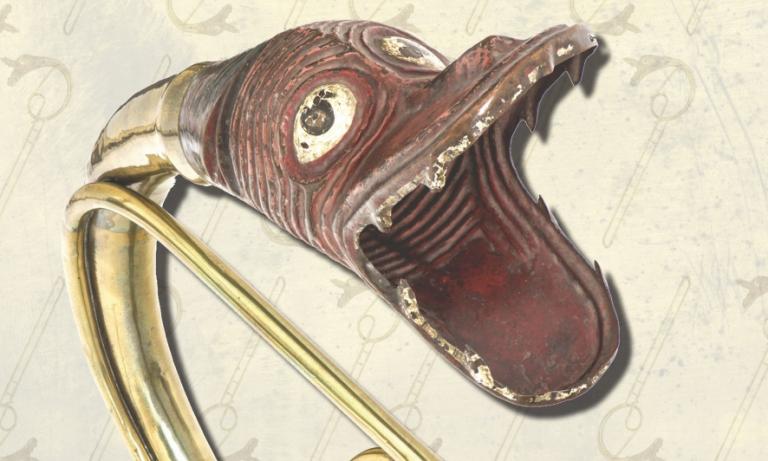Sep 15-16, 2016
Sound Objects in Transition: Knowledge, Science, Heritage
- 10:00 bis 18:00
- Workshop
Program Day 1 Program Day 2
Bells, stringed instruments, theater auditoria, pistols, phonographs, and synthesizers have a long history that is deeply entangled with the production of knowledge, science, and cultural heritage. The Working Group plans to bring these enmeshments to light, with a focus on three forms of sound objects: sound-generating, sound-transmitting, and sound-archiving objects. Alongside materially tangible objects (natural objects, artifacts, objets trouvés), the Working Group also considers immaterial sound objects (musical sounds, sounds of daily life, noise), passed on in written or pictorial form.
The Working Group asks when and how research objects became concrete objects, and what agency these objects have accrued in the domains of knowledge, science, and cultural heritage. We trace the role played by the objects’ materiality in such processes. When did their materials, their value, their sound, their shape change? How did their spatial or cultural embedment mold their use? We are interested in the extent to which sounding objects formed part of codified actions, artistic or technological practices, and social networks. How did they collect or communicate tacit knowledge? At what points did sound objects mark the transition from practical action to scientific research? Did objects circulate between scientific disciplines? And where did sounding objects escape from their scientific contexts to become everyday, communicative, museum, or art objects? How was their sound described, visualized, measured, archived, exhibited, digitized? Finally, we ask where the history of these objects flows into conventional narratives and where they write their very own history over long periods of time.
Thursday, September 15
10:00–10:15 Welcome Coffee
10:15–10:45 Introduction
Wave / Number
10:45–11:30 To Explain Consonance and Divide the Octave: Abstract Doctrines and Their Material Counterparts.
H. Floris Cohen (Descartes Centre, Utrecht University)
11:30–12:15 Marin Mersenne and the Lost Knowledge of King David’s Lyre.
Jacomien Prins (University of Warwick)
12:15–13:15 Lunch
Glass / Metal
13:15–14:00 Music of Metallurgy: Bell-Founding Metal for Musical Instruments.
Rebecca Wolf (Deutsches Museum, Munich)
14:00–14:45 Musical Glasses.
Peter Pesic (St. John’s College, Santa Fe)
14:45–15:15 Coffee break
Stage / Garden
15:15–16:00 Acoustic and Musical Realities: Performing Kunqu on Historical Stages and in Cultivated Gardens.
Joseph S.C. Lam (University of Michigan)
Concert
17:00–18:00 Piano Recital “Music, Science and Nature”
Peter Pesic (St. John’s College, Santa Fe)
Wayne Foster-Smith (Hochschule für Musik Hanns Eisler, Berlin)
Friday, September 16
10:00–10:15 Welcome Coffee
Air / Machine
10:15–11:00 Sounding the Voice Box: A History of Reconstructing the Avian Syrinx, 1750–Present.
Joeri Bruyninckx (MPIWG)
11:00–11:45 Birds as Sounding Objects.
Tiago de Oliveira Pinto (University of Music Franz Liszt Weimar & Friedrich Schiller University Jena / São Paulo)
11:45–12:00 Coffee break
12:00–12:45 Physical and Musical Objects: Vacuum Tubes throughout the Twentieth Century.
Myles Jackson (New York University)
12:45–13:45 Lunch
Ear / Voice
13:45–14:30 The Ear and Its Objects: A Longue Durée View of Research in Auditory Physiology.
Julia Kursell (University of Amsterdam)
14:30–15:15 Inner Voices: A Long History of Soliloquies.
Viktoria Tkaczyk (MPIWG, Humboldt-Universität zu Berlin)
15:15–15:45 Coffee break
15:45–16:30 On the Nightingale: Myth as Sound Object(s).
Shane Butler (Johns Hopkins University)
16:30–16:40 Closing remarks
Karin Bijsterveld (Maastricht University)
Max-Planck-Institut für Wissenschaftsgeschichte, Boltzmannstraße 22, 14195 Berlin, Deutschland

